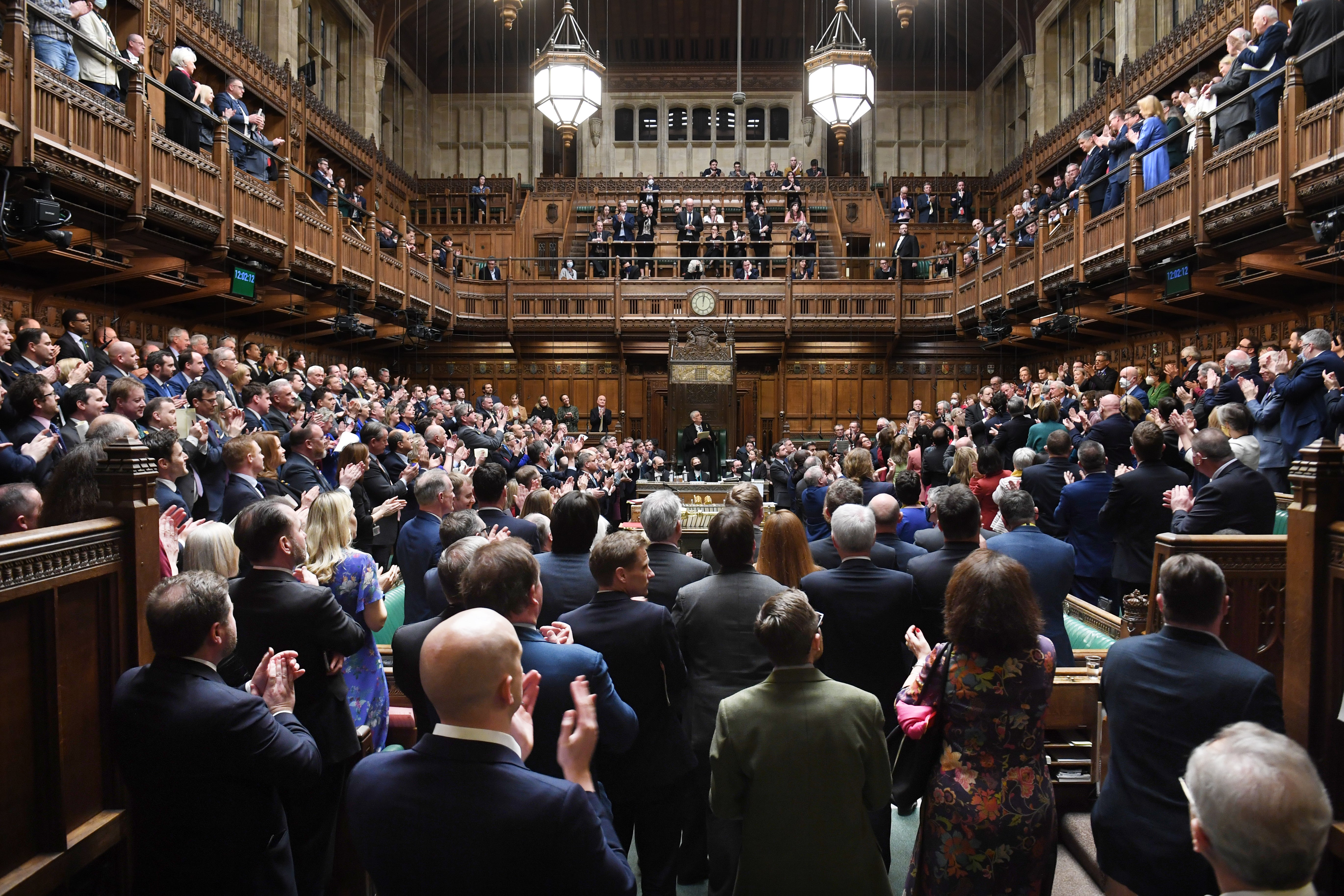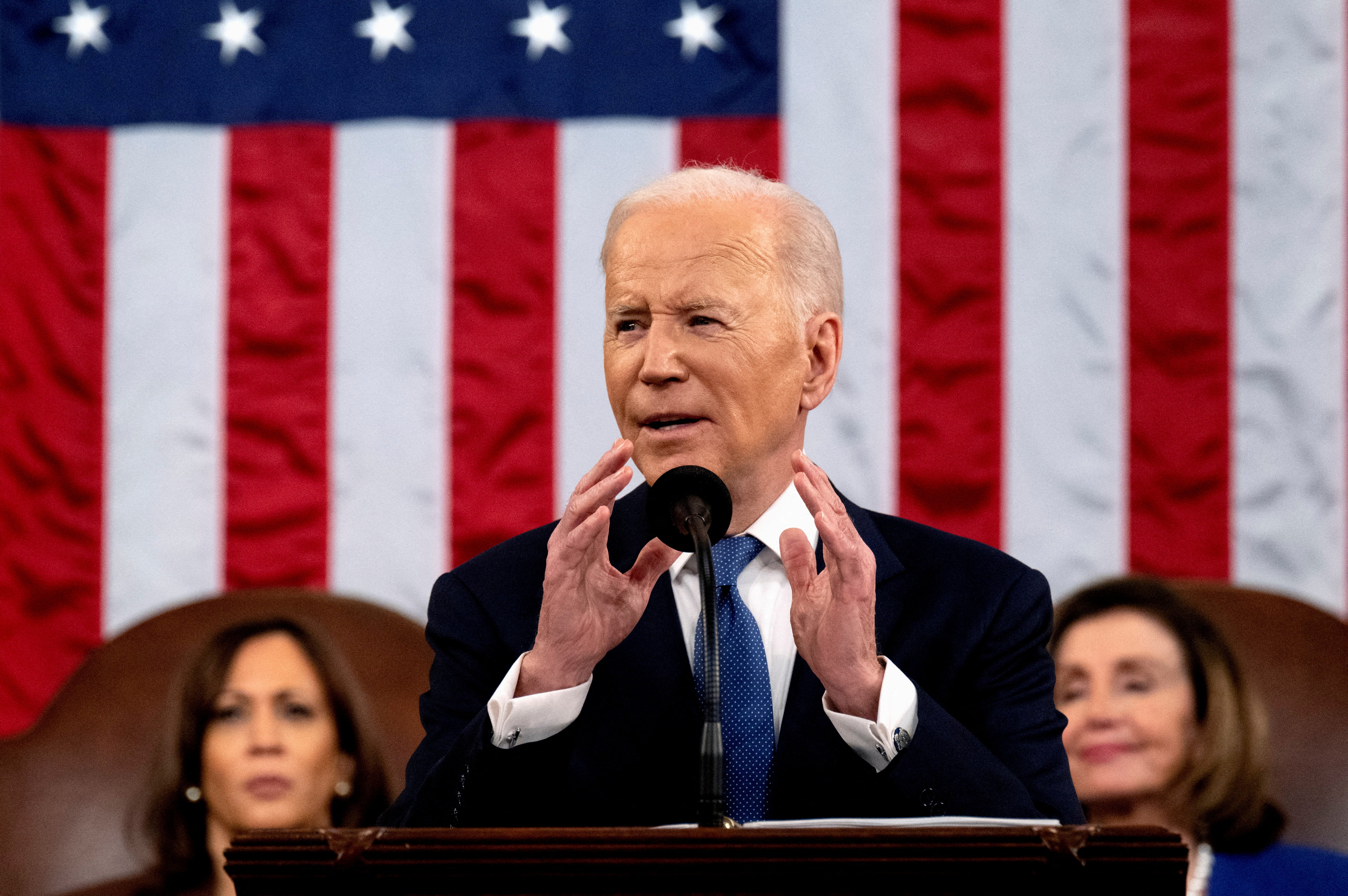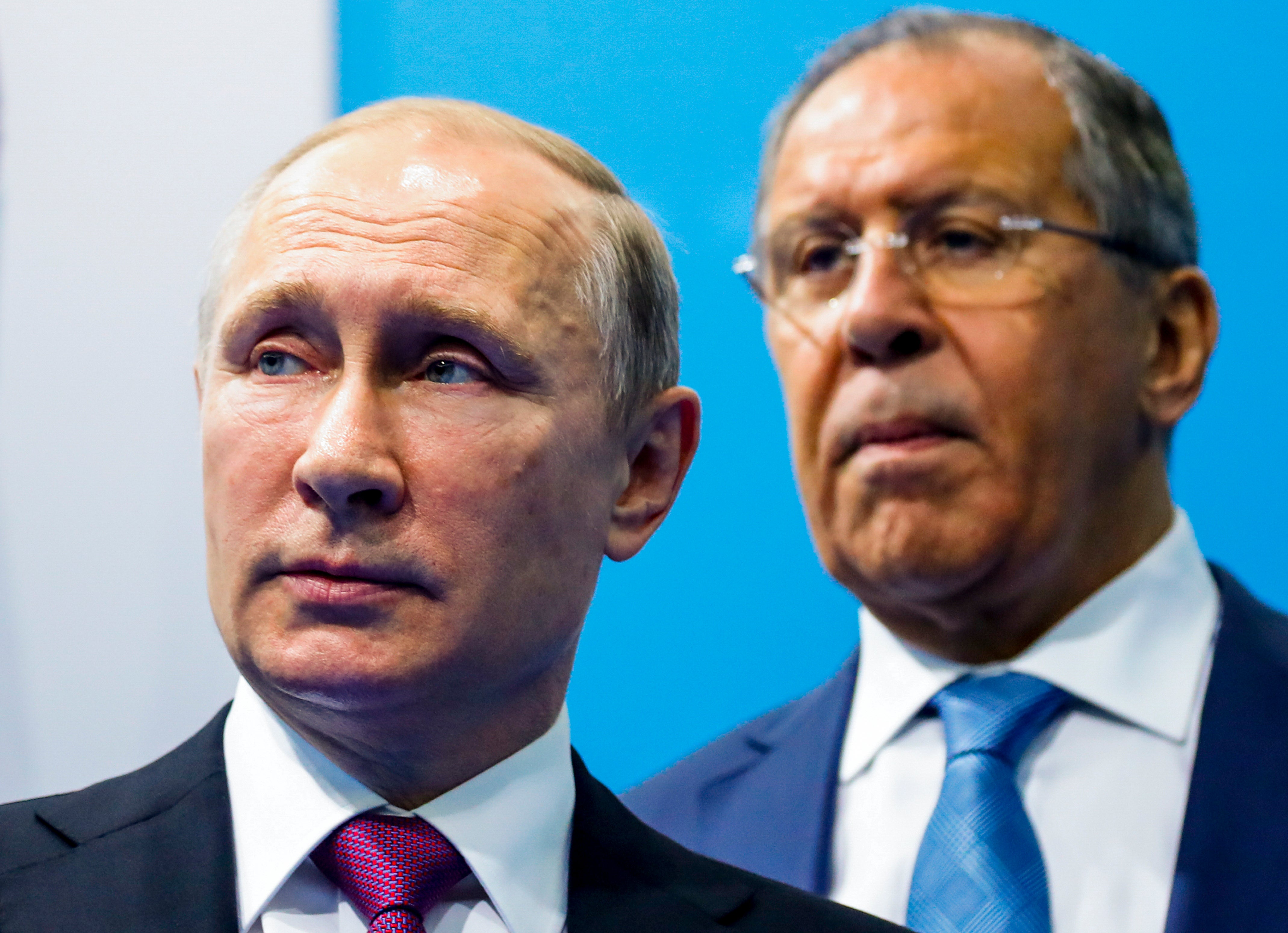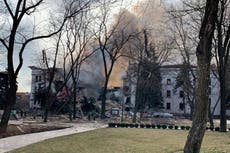Russia sanctions: Heineken and Carlsberg join firms severing ties over Ukraine invasion – see full list
Banks, businesses, oligarchs and Cabinet ministers all targeted with harsh economic penalties by Western democracies as punishment for Vladimir Putin’s actions
More than a month has now passed since Russian president Vladmir Putin began his deadly invasion of Ukraine, triggering global condemnation and a raft of sanctions across politics, business and culture.
Amid continued missile strikes and artillery attacks, the United Nations (UN) estimates that, as of midnight on Thursday, there have been at least 1,081 civilian deaths and 1,707 injuries in Ukraine, but the real total could be considerably higher.
Attempts at evacuation for Ukrainian residents desperate to flee have at times been hampered by broken ceasefires, with Russian troops relentlessly shelling the north, centre and south of the country and leaving people dead on the streets. More than three million have fled to the West as refugees.
Bomb shelters in Ukraine have had to double up as hospital bunkers and maternity wards, as women become mothers amid trembling buildings weakened by Russian artillery bombardments.
The International Criminal Court (ICC) has opened a war crimes investigation into the conflict in Ukraine, after the UK and 38 other countries backed the move, with Boris Johnson warning that Mr Putin “cannot commit these horrific acts with impunity”.
Economic boycotts have been implemented worldwide by countries and institutions to restrict Mr Putin and place financial pressure on the Kremlin to end their invasion.
Here is an ever-growing list of sanctions that have been imposed by countries, businesses and the sporting, arts and music world to date.
UK
The UK has imposed financial restrictions on 386 members of the Duma, Russia’s lower house of parliament, after they voted to recognise the independence of Ukraine’s breakaway regions of Luhansk and Donetsk, the prelude to the invasion and much of Russia’s financial system has now been hit by British sanctions.
London will prevent Russia’s largest bank, Sberbank, from clearing payments in pounds sterling.
The Russian Direct Investment Fund – the country’s sovereign wealth fund – and its chief executive, Kirill Dmitriev, have also been sanctioned.
Full asset freezes have also been imposed on several other Russian banks and the UK has set a £50,000 limit on bank accounts held by Russian nationals in the UK.
The country’s national airline, Aeroflot, has also been blocked in the UK, as well as a multitude of Russian companies involved in defence and technology.
Shipbuilder company United Shipbuilding Corporation, the largest in Russia, has also been targeted, while Russian ships have been banned from UK ports.

Britain is also planning to ban the export of certain technologies to Russia.
Mr Johnson said: “We will continue on a remorseless mission to squeeze Russia, from the global economy, piece by piece. Day by day, and week by week.”
The government announced a full asset freeze and travel ban on two of Russia’s leading oligarchs, Alisher Usmanov and Igor Shuvalov, who officials said had “significant UK interests and close links to the Kremlin”.
Since the invasion, the UK has sanctioned 13 of Russia’s oligarchs in total and more than 220 individuals and entities have been caught up in the sanctions.
In total, more than 500 Russian individuals, entities and their subsidiaries now sit on the UK’s sanctions list.
Britain will also ban Russian companies from the London insurance market, the world’s largest commercial and specialty insurance centre.
EU
The European Union has also sanctioned multiple companies and banks.
In a fourth wave of sanctions, the bloc will ban the export of any luxury goods from EU countries to Russia and prohibit the import of key goods in the iron and steel sector from the country.
They will also propose a major ban on new European investments across Russia’s energy sector, covering “all investments, technology transfers, financial services, etcetera, for energy exploration and production”.
Alongside UK and US, the European Commission has pledged to remove Russia from the Society for Worldwide Interbank Financial Telecommunication (Swift).
Swift is used by over 11,000 financial institutions to send secure messages and payment orders.

The EU will also employ restrictive measures that will prevent the Russian central bank from using its international reserves and assets to undermine the economic sanctions.
Additionally, the EU has banned the Russian company, Internet Research Agency, which is engaged win online influence operations on behalf of Russia.
EU Commission president Ursula von der Leyen said: “We will stop Putin from using his war chest.”
The EU has further banned Russian airlines from entering its airspace or using its airports, brought in individual sanctions against Mr Putin, his foreign minister Sergey Lavrov and other members of the Duma and curbed transactions with the Russian central bank.
Brussels has also suspended the broadcasting of state-owned media Russia Today and Sputnik within the bloc.
US
Along with the EU, UK and G7, the US have moved to revoke Russia’s “most favoured nation” status, which will block Russia from trade benefits the country previously enjoyed.
Additional sanctions against Russia’s central bank have prohibited Americans from doing any business with the institution as well as freezing its assets within the US.
The country also blocked the import of Russian technology, including “semiconductors, telecommunication, encryption security, lasers, sensors, navigation, avionics and maritime technologies”, the White House said in a statement.
Like the UK, America cut off the state-owned Russian Direct Investment Fund, which was seen as a piggy bank for Mr Putin and his inner circle.

Joe Biden’s administration has ordered further sanctions blocking Russian oligarchs. They include Mr Putin’s press secretary, Dmitry Peskov, and the aforementioned Mr Usmanov.
The US State Department also announced it was imposing visa bans on 19 Russian oligarchs and dozens of their family members and close associates.
Others targeted include Nikolai Tokarev, a Transneft oil executive; Arkady Rotenberg, co-owner of the largest construction company for gas pipelines and electrical power supply lines in Russia; Sergei Chemezov, a former KGB agent who has long been close to Mr Putin; Igor Shuvalov, a former first deputy prime minister and chairman of State Development Corporation; and Yevgeniy Prigozhin, a Russian businessman with close ties to Mr Putin.
Australia
The continent set targeted financial sanctions against eight members of the Security Council of the Russian Federation and has imposed travel bans.

Prime minster Scott Morrison said that Canberra was working with the US to impose sanctions on Belarus and key Belarusian entities that have been “complicit in the aggression”.
New Zealand
Prime minister Jacinda Ardern announced sanctions that would give the country the ability to freeze Russian assets in New Zealand, prevent people and companies from moving their money and assets to the country to escape sanctions imposed by other countries, and stop superyachts, ships and aircraft from entering New Zealand waters and airspace.
The PM has also banned exports to Russia’s military and security forces and has blocked more than 100 people from traveling to New Zealand in a list that was made public.
Japan
Aligning with G7, prime minister Fumio Kishida said Japan will limit transactions with Russia’s central bank and cut Russia from the Swift network.
Like Australia, Japan will also impose sanctions on Belarusian organisations and limit exports there due to the country’s part in the invasion of Ukraine.

The country has frozen the assets of an additional 32 Russian and Belarusian officials and oligarchs.
Taiwan
Taiwan’s Ministry of Foreign Affairs confirmed it will join other countries in imposing economical sanctions on Russia, but has not yet specified what companies it will be targeting.

It comes amid fears China could one day mount its own invasion of Taiwan, a situation with clear parallels to what is unfolding in Eastern Europe.
Switzerland
Though historically neutral, Switzerland has joined the international effort to boycott Russia through economic sanctions.
The country is freezing the assets “with immediate effect” of Mr Putin, Russia’s PM Mikhail Mishustin and Mr Lavrov.
France
Russian-owned luxury sanctions will be targeted by economic sanctions, said French finance minister Bruno Le Maire.
The country’s sanctions will affect financial assets, real estate, yachts and luxury vehicles that belong to Russian individuals.
Businesses
Mercedes-Benz has stopped the imports of its cars to Russia and will cease manufacturing there until further notice.
Two of the big four accounting firms, KPMG and PwC, said they will no longer have a firm in Russia due to the invasion.
The world’s biggest cosmetic company L’Oreal is shutting its stores in Russia and suspending online sales, and cosmetics giant Estee Lauder also announced it will close all concessions and stop shipping make-up to the country.
The owner of Cadbury is the latest big company to reduce operations in Russia while fellow confectionary giant Mondolez, owner of multiple brands such as Oreo, Daim and Toblerone, is scaling back all non-essential business but has not stopped operations completely.
Joining them in the commercial boycott of Russia until further notice are such diverse brands as Yorkshire Tea, Uniqlo, Mothercare, Heineken, Pizza Hut, KFC, Hitachi, PepsiCo, McDonald’s, Starbucks, Kraft Heinz, Kellogg’s, H&M, Burberry, Canada Goose, Chanel, Prada, Hermès, Dior, Givency, Fendi, Bulgari, Inditex, Asos, Boohoo.com, Marks & Spencer, Ikea and Lego.
Having both previously said they would halt new investments and exports to Russia in response to the war, brewing giants Carlsberg and Heineken said on 28 March that they planned to pull out of the country entirely.
Heineken said the move would cost the Dutch firm some €400m (£334m), while Carlsberg said it made 682m Danish kroner (£77m) in operating profit last year from Russia, where it employs 8,400 people.
Adidas has also suspended its partnership with the Russian Football Union effective immediately while Nike has halted all online sales in Russia, and Puma has closed its stores.

Apple has imposed a number of measures on Russia, banning sales on its products in the country and stopping all export to its sales channel in Russia. Common services such as Apple Pay have also been restricted there.
Google has also suspended its ad business in Russia and Microsoft, Dell and Adobe have suspended new sales of their products and services in the country.
Video games company Nintendo has joined PlayStation owner Sony in stopping all product sales in Russia.
In the oil industry, Royal Dutch Shell has said it will divest in several ventures with Russian-state owned gas company Gazprom and BP has decided to sell its 20 per cent stake in Russia.
ExxonMobil likewise announced it would not invest in new developments in the country and is leaving its last remaining oil-and-gas project.

Brazilian plane-maker Embraer has joined Airbus and Boeing in halting parts supplies to Russian airlines and Delta Air Lines suspended its code sharing partnership with Aeroflot.
AirBaltic has suspended all flights to and from the Russian markert, while travel-booking company Expedia have suspended all travel in and out of Russia, joined by Airbnb, which has also suspended all operations in Belarus.
Sports
Fifa and the Uefa Champions League have banned Russian national teams from all international competitions and Uefa has moved the Champions League Final from St Petersburg to Paris.
Formula One has called off the 2022 Russian Grand Prix and the International Olympic Committee has urged sports bodies to exclude the country’s athletes and officials from international events while World Cup skiing events in Russia have been cancelled.
The International Paralympics Committee in turn banned Russian and Belarusian para-athletes from the 2022 Winter Paralympics in Beijing, China.
The International Skating Union said no athletes from Russia or Belarus will be invited or allowed to participate in its events until further notice.

The International Ice Hockey Federation and the National Hockey League have disallowed Russian competitors and the latter has also put a pause on Russian-language social and digital media sites.
The World Karate Federation has relocated its 2022 tournament away from Moscow (a personal blow to Mr Putin, a lover of martial arts) and the World Squash Federation relocated its junior championships away from St Petersburg.
World Taekwondo have banned Russian and Belarusian athletes from competing in tournaments and has stripped the Russian leader of the honorary black belt he was awarded in 2013.
Arts and entertainment
Video game giant Electronic Arts has said it is removing the Russian national team and all of its football clubs from its popular video game FIFA 22.
Sony Interactive Entertainment, manufacturer of PlayStation 5, has suspended all software and hardware shipments, the launch of Gran Turismo 7 and operations of the PlayStation Store in Russia.
Nintendo has also announced it will be halting all exports to Russia for the foreseeable future.
Disney, Warner Bros and Sony Pictures Entertainment, Paramount and Universal said they would pause releases of upcoming films in theatres in Russia, including the release of The Batman, Sonic the Hedgehog 2 and new Pixar film Turning Red.

Netflix announced that it would go against Russia’s law to carry 20 propaganda channels and Eurovision has banned the country from entering its annual competition this year, while YouTube has blocked channels operated by Russia Today and Sputnik News.
BBC Studios, All3Media and ITV Studios have stopped doing business with Russia, ending the licensing of shows to Russian broadcasters.
TikTok has restricted access to Russian state media accounts in the EU, joining Meta bedfellows Facebook and Instagram, while Snapchat has stopped advertising sales to all Russian and Belarusian entities.
The Glasgow Film Festival has dropped two Russian films from its line up and the Cannes and Venice festivals said Russian delegations will not welcome at any of their events either.
Spotify has closed its Russian office and removed all content from Russian-owned media.
Music
In response to Russia’s actions, a number of concerts and tours have been cancelled that were scheduled to arrive on its shores.
Bands including The Killers, Green Day, Bring Me to the Horizon and Franz Ferdinand have all withdrawn from planned live events in Moscow and St Petersburg.
Louis Tomlinson is among the solo artists who have removed Moscow from their world tours, along with artists Yungblud and Nick Cave.
Individuals
Mr Putin, Mr Lavrov and Kremlin defence minister Sergei Shoigu have had their foreign assets frozen in the UK, US and EU.

FBS security head Alexander Bortnikov, armed forces chief Valery Gerasimov and members of Russia’s Security Council have also been blocked from accessing their foreign assets.
The EU has imposed sanctions on 351 members of the Duma, while the UK has imposed penalties on 386.
Britain has ordered further blocks and a freeze on transactions for five super-wealthy individuals who are close to Mr Putin and several Russian oligarchs and their families who have businesses and homes in the UK, the most prominent being Chelsea FC owner Roman Abramovich, Oleg Deripaska, Igor Sochin and Alexei Miller.
The Independent has a proud history of campaigning for the rights of the most vulnerable, and we first ran our Refugees Welcome campaign during the war in Syria in 2015. Now, as we renew our campaign and launch this petition in the wake of the unfolding Ukrainian crisis, we are calling on the government to go further and faster to ensure help is delivered. To find out more about our Refugees Welcome campaign, click here. To sign the petition click here. If you would like to donate then please click here for our GoFundMe page.
Join our commenting forum
Join thought-provoking conversations, follow other Independent readers and see their replies
Comments


Bookmark popover
Removed from bookmarks